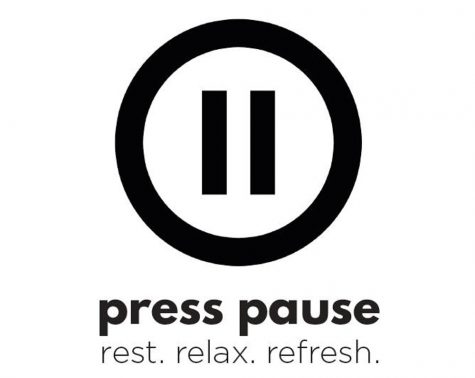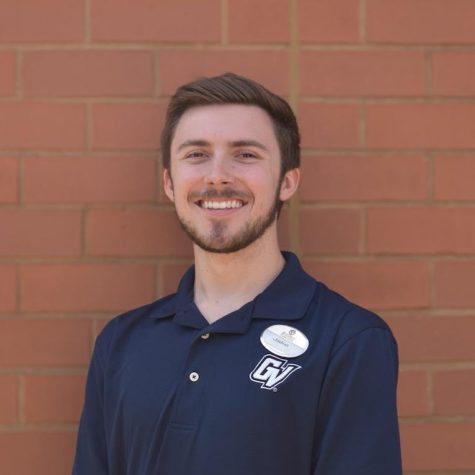“Press Pause” campaign focuses on balance for month of April
Apr 5, 2021
As the end of the Winter 2021 semester nears, Grand Valley State University’s recreation and wellness (RecWell) Press Pause campaign is highlighting the importance of keeping a balanced lifestyle. This month’s theme will also focus on avoiding burnout — a popular feeling for students this time of year.
The Press Pause campaign has spotlighted a different student wellness theme each month this semester — these themes include self-care, rest, unplugging and sleep. Balance is a culmination of all those themes, and it’s one that Ryleigh Emelander, Health Promotion Assistant and Press Pause coordinator, knows the difficulty in obtaining.
“Most of us can relate to feeling busy all the time, especially this semester when so much is going on and it doesn’t feel like we get a real break,” Emelander said. “This ‘grind’ culture is actually harmful to your health and wellbeing.”
This semester is unique because GVSU students did not have a traditional week-long spring break. Instead, the University designated two break days throughout the semester — March 10 and April 1 — so students could still get some time off of schoolwork while also ensuring that COVID-19 spreading could be kept to a minimum.
Emelander explained that this month’s theme was also chosen because of the tendency for students to feel burned out by this point in the semester.

“Students have so many things that are difficult to balance,” Emelander said. “With our busy lives, it feels like there is never enough time to take a break. Or if we do take a break, then we feel guilty about it. Our hope was that if we used April to focus on balance, students can understand the benefits of prioritizing rest.”
RecWell offers an online quiz that students can take to assess how they are doing in each of the eight dimensions of wellness. The quiz covers emotional, intellectual, occupational and physical wellness, among other topics. At the end of the quiz, students can see which dimensions of wellness they may be struggling with and get an idea of how to work on those dimensions in the future.
Emelander explained how the eight dimensions of wellness can easily show how students’ lives can be unbalanced.
“You can think of the wellness wheel like a pie chart, with each dimension slice indicating how much time you’re spending in that area,” Emelander said. “The goal is to have each dimension be equal in size when trying to achieve balance.”
RecWell provides several opportunities for students to use to improve their wellness. Emelander highlighted a few that are especially relevant to keeping a balanced lifestyle.
“On April 8, we have a ‘Finding Balance to Avoid Burnout”‘ discussion panel, which is a great opportunity for students to learn more about how to prevent burnout from happening in the first place,” Emelander said. “We also have a wonderful blog post available for students to learn more about why rest is so important.”
Aside from online resources, there are also plenty of physical ways that students can improve their day-to-day levels of balance. Emelander suggests that students start by figuring out how they spend a typical day.
“What things require the most time?” Emelander said. “What things feel the most draining? Where is there room to take a break? When contemplating this information, it can make it easier to identify where rest is needed.”
More information about wellness and the Press Pause campaign can be found at www.gvsu.edu/studentwellness/.
























